Iran Releases Crew Members Of Two Seized Greek Oil Tankers
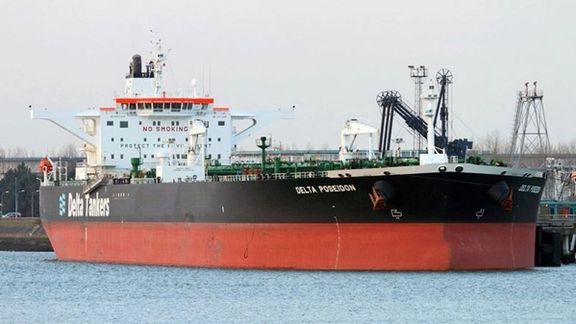
Iran has reportedly released the 49 crew members of two Greek tankers seized by its Revolutionary Guards in May after confiscation of Iranian oil by the US from a tanker off the Greek coast.

Iran has reportedly released the 49 crew members of two Greek tankers seized by its Revolutionary Guards in May after confiscation of Iranian oil by the US from a tanker off the Greek coast.
A Greek shipping ministry source said on Monday that "a very serious effort has been under way for the return of the Greek crews the soonest possible," without elaborating. Iran had said the crew were not detained and are on board their vessels.
The Greek union of commercial ships' seafarers said Sunday that Iran has agreed to release the crews so they will be replaced, allowing their return to their countries of origin as of Monday. It was not clear whether the two tankers, the MT Prudent Warrior and Delta Poseidon, would be released, a statement on the union’s website added.
Iran's foreign ministry spokesperson Nasser Kanaani did not confirm the information. "We have no confirmation at this moment about a release," he said early Monday, expressing hope that "there would be positive developments in the future".
Tehran allowed the release of the crews after the 100,000 tons of oil originally seized by the Greek authorities at the request of the US was returned to the tanks of the Iranian-owned ship Lana late August.
The Iranian-flagged tanker Lana, formerly Pegas, was seized by Greece in April and was held for months, and the US had confiscated part of its oil cargo due to sanctions. The Iranian Revolutionary Guards' navy seized the two vessels during helicopter-launched raids in the Persian Gulf on May 27, a week after Washington chartered a vessel to transfer the Iranian oil to the US.
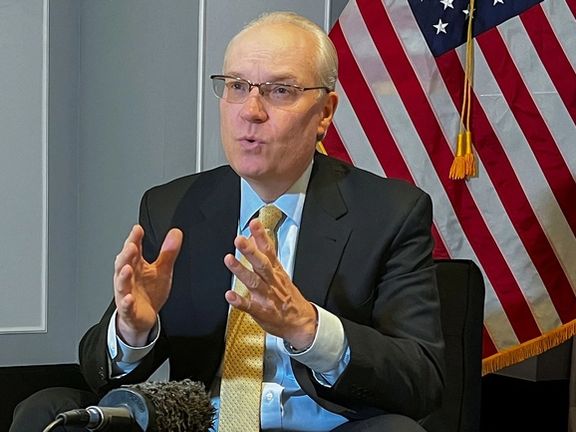
The US special envoy for Yemen says the relationship between the Houthis and Iran has been mostly a “lethal” one, with the Iranians having encouraged the Houthis to launch attacks.
Timothy Lenderking made the remarks in an interview with Arab News on Sunday in Riyadh, where he arrived as part of a diplomatic push to extend a UN-mediated truce in Yemen into a permanent arrangement.
He said the Islamic Republic has “supported the Houthis in developing their military capability, their UAV capability. And that’s been very negative,” criticizing Iran for fueling rather than tempering the conflict.
Describing the truce as an opportunity for the Houthis to show good faith and good will, he said, “From what we know after talking to Yemenis inside Yemen and around the world, there is no appetite for a return to war. There is no capacity for anybody to wish to see this happen.”
Washington’s point man for Yemen also expressed hope that Tehran’s actions would match its words -- welcoming the truce and backing an extended ceasefire -- by supporting the current positive situation as fuel ships and commercial flights are working again.
The Houthis receive military and political support from Iran in their conflict with other Yemenis, who have been backed by a Saudi-led coalition since 2014. Iran has been sharing its missile and drone technology with Yemen’s Houthis and has also supplied other proxy forces, such as the Lebanese Hezbollah and Iraqi Shiite militias.
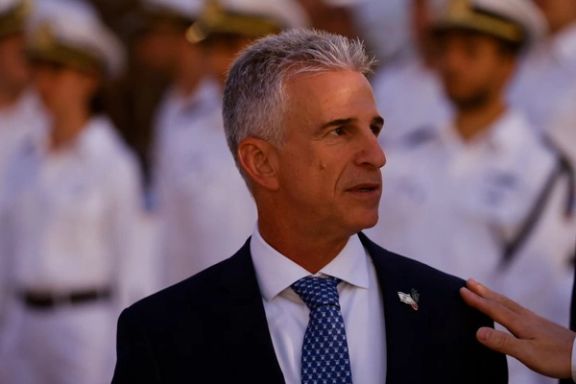
Mossad chief David Barnea says Israel will not go after Tehran’s proxies but will act against the ones who arm them, with a painful response on Iranian soil.
In his first public speech since becoming head of the spy agency in June 2021, Barnea said at a conference at Herzliya’s Reichman University on Monday that Israel would not participate in the “charade” of a renewed nuclear deal between world powers and Iran, warning that the looming accord would “not provide immunity” for Tehran from Mossad’s operations, “even if a deal is signed.”
“The Iranian leadership must understand that attacks against Israel or Israelis, directly or indirectly by proxies, will be met with a painful response against those responsible, on Iranian soil,” Barnea warned.
“The deal is based on Iranian lies. Iran has sought to build a nuclear weapon that endangers Israel’s existence. The deal will easily help them reach this goal under international legitimization,” he added.
“It is state terrorism, ordered by [Iran’s Supreme] Leader and perpetrated by the Islamic Revolutionary Guard Corps (IRGC) and other Iranian intelligence organizations. It is not spontaneous; it is planned, systematic, and strategic terror,” he said.
He underlined that terror is Iran’s substitute for diplomacy, stating that “Terror serves to help the survival of the regime, prevents any change by the Iranian public, undermines the sovereignty of its neighbors, and deters them from cooperating with Israel. Terror is used to extort countries all over the world.”
Mossad had foiled “dozens of Iranian terror attacks against Israelis and Jews abroad” recently, in Cyprus, Turkey, Colombia, and “many other places,” Barnea said. “Attempts are being made to harm American officials on US soil.”

Iran International has obtained photos of key Iranian players in global cyberattacks who are affiliated with various government intelligence agencies in Tehran.
The most recent case of a destructive cyberattack attributed to Iranian intelligence operatives was an intrusion by hackers into Albanian government computer systems that began in 2021 and ended with a massive disruption in July, according to Microsoft’s security investigations. Information was stolen and public services disrupted by the Iranian hackers, because Albania is hosting an opposition group.
Last week, Albania cut diplomatic relations with Iran and expelled its diplomats and immediately its security forces entered the embassy compound looking for evidence.
The United States imposed sanctions on Iran’s intelligence ministry and its minister, with NATO also expressing support for its member state Albania.
According to information obtained from Backdoor cybersecurity firm the head of cyber warfare of Iran’s Revolutionary Guard (IRGC) is a person identified as 61-year-old Hamidreza Lashkarian (Lashgarian) living in Tehran and apparently a university lecturer with published articles. He has a background of involvement in various IRGC intelligence operations against commercial navigation and other clandestine activities.
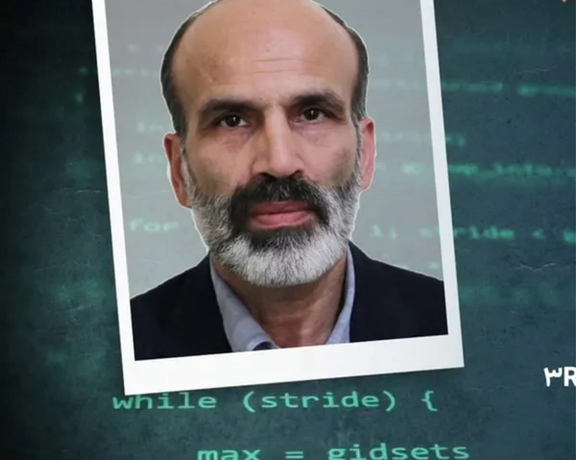
Last year, a group called Sayyad Project had targeted the airport of Albania’s capital Tirana. An anti-Iran cyber group called Lab Dookhtegan or Read My Lips revealed the identity of the person directing the cyberattack as Mohammad-Bagher Shirinkar.
Iran International has obtained his photo from Backdoor and his alias is Mojtaba Tehrani, sanctioned by the United States for his tied with the IRGC.
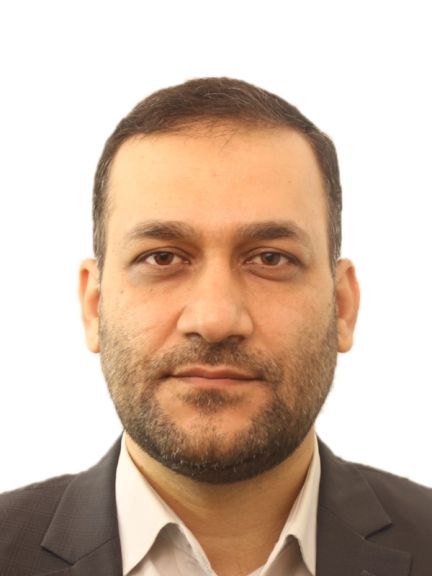
His brother Mhammad-Hossein Shirinkar is also one of the main actors in the Sayyad group. He is reportedly the head of IRGC Intelligence Inspectorate, according to Lab Dookhtegan.
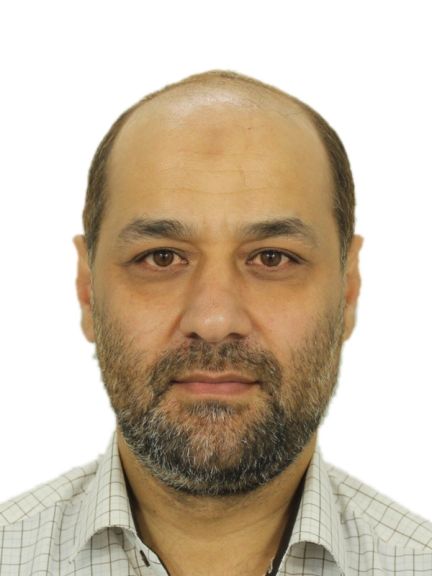
Another operator is Mehdi Hashemi Tughraljardi who is the brother-in-law of Shirinkar brothers. He is also sanctioned by the US and general director of a digital company in Tehran.
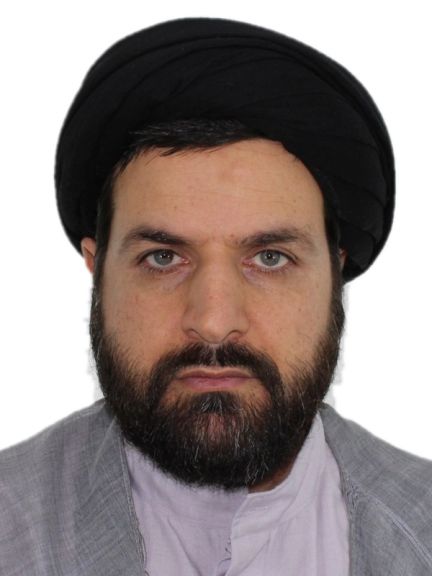
Microsoft’s investigation made clear conclusion about the cyberattacks on Albanian public digital infrastructure. “Microsoft assessed with high confidence that on July 15, 2022, actors sponsored by the Iranian government conducted a destructive cyberattack against the Albanian government, disrupting government websites and public services,” adding that Microsoft security intelligence assesses that a separate Iranian state-sponsored actor leaked sensitive information that had been exfiltrated months earlier through various websites and social media outlets.
“Microsoft assessed with moderate confidence that the actors involved in gaining initial access and exfiltrating data in the attack are linked to EUROPIUM, which has been publicly linked to Iran’s Ministry of Intelligence and Security (MOIS),” Microsoft said.
According to Microsoft, attackers were observed operating out of Iran and used tools and a wiper code previously used by other known Iranian attackers with a history of targeting other sectors and countries that are consistent with Iranian interests.
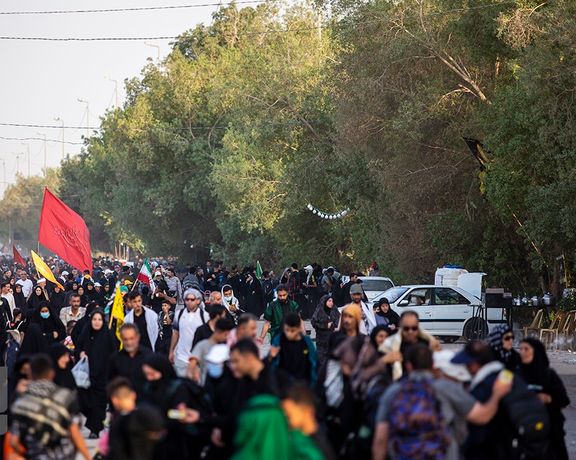
At least eleven Iranian pilgrims on their way to Karbala in Iraq were killed in a road accident Sunday bringing the total casualties of the annual pilgrimage to at least twenty.
According to Iraqi authorities, the pilgrims and an Iraqi driver were killed on the road to the Shomali district in Babil Governorate in an accident involving a bus, a van and a truck.
An official of the Iranian Red Crescent, Taher Doroudi, said the accident happened near a gas station and the van hit the truck after a gas canister in it exploded. A video posted on social media shows smoke rising from the burning vehicles in the desert. And people wailing and running away from the scene of the explosion.
Thirty others were injured in the accident and explosion, authorities said. "It's not possible to identify the victims of the pilgrims' bus because of severe burns," Doroudi said.
The hot weather also left tens of thousands of pilgrims dehydrated and in need of medical care. Iran’s Red Crescent Society said Friday that at least nine people had died and about 10,000 people were referred to healthcare stations with signs of heatstroke.
Millions of Iraqi Shias as well as pilgrims from countries including Iran, Azerbaijan, Pakistan, Lebanon, Afghanistan, Bahrain, Kuwait, and Saudi Arabia have already arrived or are on the way to the holy Shiite city of Karbala, located about 100 kilometers (62 miles) southwest of Baghdad Arbaeen ceremonies which will be held on September 17 this year.
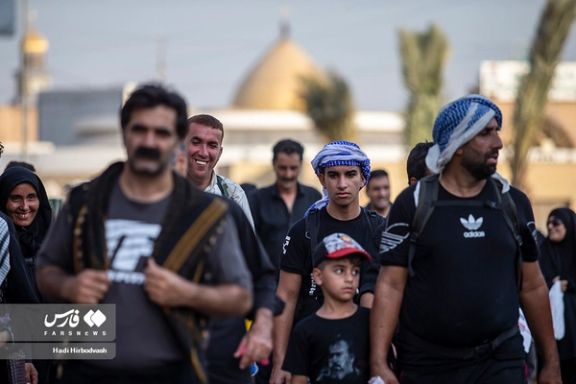
It was estimated that between one and 1.5 million people crossed Iranian land and air borders into Iraq seven days before Arbaeen last year. “The figure stands at more than two million people this year,” Iran's State-run English-language Press TV channel said Sunday.
So far this year, the Tehran-supported pilgrimage to Karbala has been associated with confusion and chaos, lack of planning and proper facilities.
On Friday, Iraq and Iran closed land borders citing “worrying and serious dangerous incidents at two border crossings” as the reason but the influx of pilgrims from Iran was resumed later.

A commander of Iran-backed Shiite militia Hashd al-Shaabi, also known as Popular Mobilization Forces, claimed Saturday that the group thwarted a "terrorist plan to target the pilgrims in the city of Karbala." He did not provide any details about the attack or attackers.
In a statement published on his personal Twitter account Sunday, the leader of Iraq’s Sadrist movement, Muqtada Al-Sadr, urged Iraqis to show the highest degree of cooperation with security forces, especially in Karbala, and stressed that neither the pro-Iran Hashd al-Shaabi (People's Mobilization Forces (PMF)) nor Saraya al Salam (Peace Companies), a paramilitary group loyal to Sadr himself, should be entrusted with any security work on the ground or at checkpoints during Arbaeen ceremonies this year.
Sadr also forbade Iraqis from attacking or insulting foreign pilgrims, “Iranian brothers in particular”, “by hand, tongue, leaflets, or in any other way”.
Clashes between Pro-Sadr paramilitary and pro-Iranian Hash al-Shaabi in late August left at least 30 dead.
Social media reports say Iraqis are not as welcoming to Iranian pilgrims as in previous years, but Press TV said Saturday that Iraqis were “extending hearty and sincere welcome” to hundreds of thousands of Iranian pilgrims and that Iraqi people and state official were working to resolve the difficulties arising from lack of adequate transportation facilities to move and unprecedented high number of Iranian pilgrims from Iran’s western borders to Karbala.
“Iraqis have driven towards the border crossings with their own cars to solve the problem,” Press TV wrote.
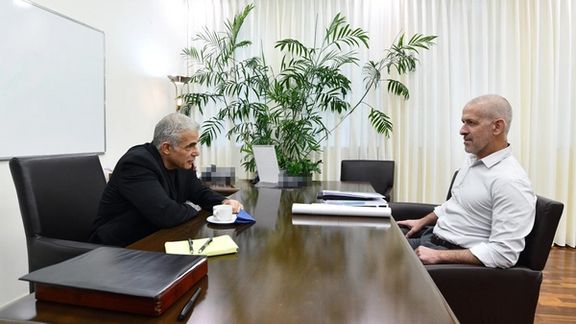
The director of Israel’s security agency Shin Bet said Sunday Iran is not just a nuclear problem, but is the root cause of most of the problems in the Middle East.
Emphasizing that the Islamic Republic “is the main problem in the Middle East,” Ronen Bar said that “Iran is the cause of much of the problems we are facing now in the West Bank, and the recent fighting in the Gaza Strip.”
“We can only dream of the level of terror” Tehran can promote if sanctions against the country are removed as part of a revival of the 2015 nuclear agreement with the US and the West.
He said the eras of conventional warfare, the nuclear arms race and physical terror have passed and in the current era terrorists can use social media platforms and algorithms to influence trends to manipulate the understanding of the general populations of Western countries of the current world events.
He added that “information technology must transform into information management” to fight back against these social media trends, stressing the need to develop a diverse mix of technological experts in different cyber and other arenas, who can deal with distinct social media threats impacting the Palestinians and other Shiites throughout the region.
Earlier in the day, Israeli Prime Minister Yair Lapid thanked France, the United Kingdom and Germany for their “firm position,” a day after the European powers raised “serious doubts” about Tehran's intentions to reach a nuclear deal.
On Thursday, the US Special Representative for Iran Rob Malley met with Jewish groups after an unexpected lag in Iran nuclear negotiations following several weeks of progress.